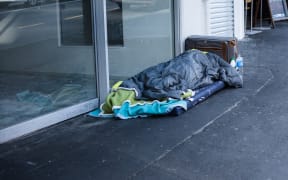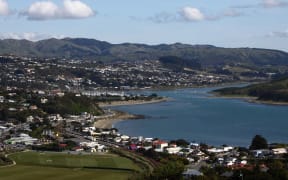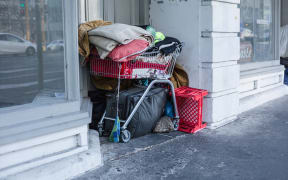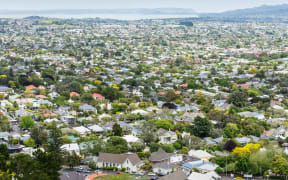Prime Minister Jacinda Ardern says emergency accommodation is a "stopgap measure" and is concerned about its long-term social effects.
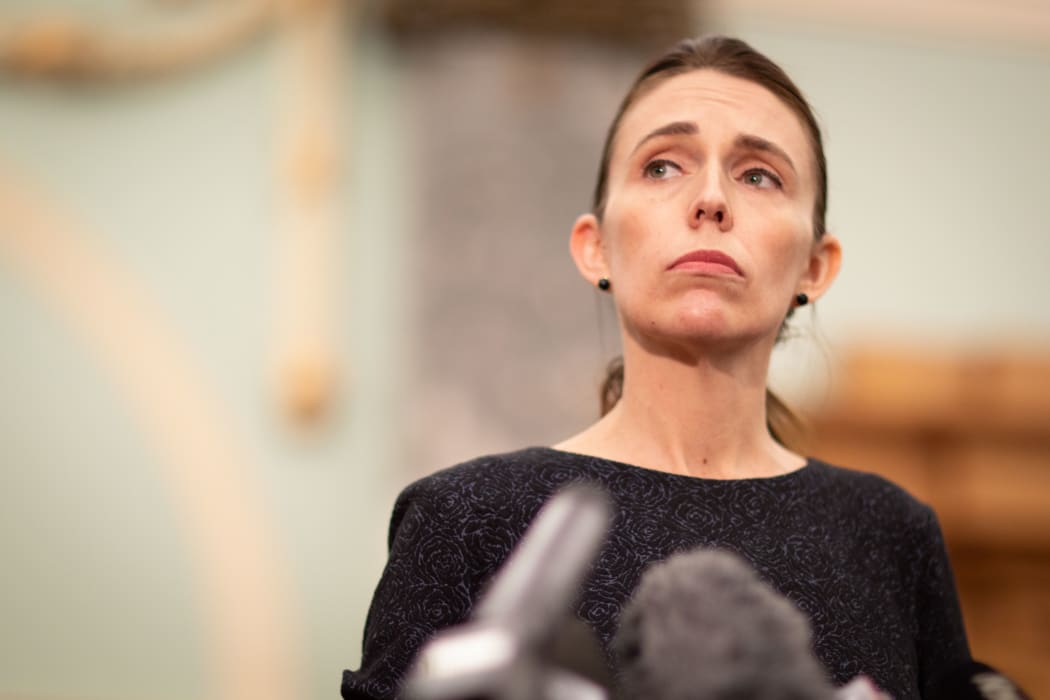
Prime Minister Jacinda Ardern says public housing has increased in Rotorua but more is needed to meet demand. Photo: RNZ / Angus Dreaver
However, she would not say how long motels would be used to house the homeless.
"These are stopgap measures until we make sure we have more permanent solutions," she said.
However, Rotorua MP Todd McClay said he believed emergency accommodation in motels might continue for another five years at least.
Ardern, along with social development Minister Carmel Sepuloni, was in Rotorua on Thursday to launch a conservation and restoration project and announce $14.1 million funding for He Poutamai Rangatahi, which would go towards 11 providers in six locations, including Rotorua.
Ardern told Local Democracy Reporting public housing had increased in Rotorua but more was needed to meet demand.
Emergency accommodation has proved a controversial subject in Rotorua, with many locals expressing dissatisfaction with anti-social behaviour around the motels.
She said more public housing in Rotorua was either in design or build stages, which she believed were "significant numbers relative to what we have seen in the past".
"In addition, you can see these extra land purchases occurring, there's extra support that's gone into [the] council, to help with the infrastructure required, there's been funding that's come specifically through for Māori housing options as well.
"All of these solutions are needed so we don't see an ongoing reliance on emergency housing."
She said "greater stability" was needed for those with immediate emergency housing need, which was why social services were provided and had a "greater presence".
Asked how long emergency accommodation in motels would go on for, Ardern said motels were not the best option for families.
"Garages, cars - when we came into office that was frequently one of the stories we would hear."
She said that was why supply was important.
"We're using these options because we don't want to see families in unsafe situations, we've tried to make temporary housing safer, but the long-term solution is growing our public housing stock."
She said the government had built more than 70 public houses and had 180 more in the pipeline.
"Relative to what we've seen before [it's] a significant growth."
She said she "absolutely" had concerns about the long-term social effects of emergency accommodation.
Ardern said there was a "perception that there were people that weren't from the region" being brought into Rotorua to emergency accommodation.
"I can only rely on what I'm told by those who are here, those who know the members of their iwi and hapū who have, I've heard, disputed some of that assertion."
Rotorua-based list MP Tāmati Coffey said he believed that there were a lot of "desperate" locals who had been pushed out of the rental market in Rotorua's emergency accommodation.
"We don't want them to be in emergency housing, but we also don't want them to be filling up Kuirau Park. We also don't want them in the shops, in the door fronts of some of the shops around the CBD.
"Covid has forced us to take action, to actually put people into accommodation, and that's a good thing, but it's not long term."
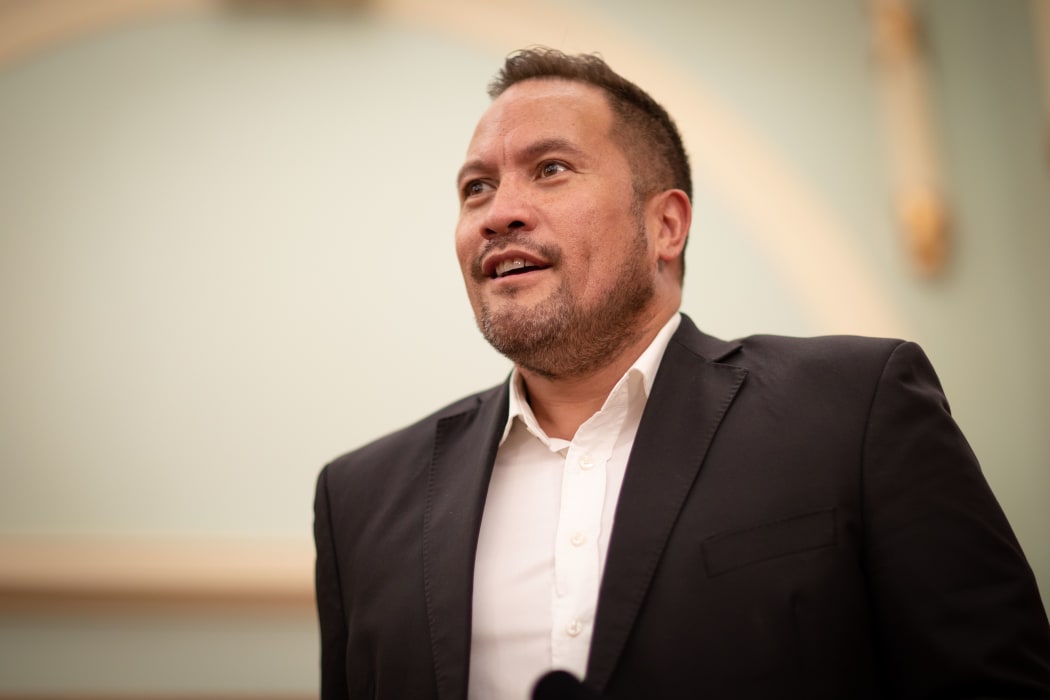
Rotorua-based list MP Tāmati Coffey. Photo: RNZ / Angus Dreaver
Rotorua MP Todd McClay said he had spoken to motel owners in Rotorua who expected to accommodate people for "up to five years".
"It's a shame the prime minister wasn't able to talk to locals about their concerns about law and order, either in the supermarket carparks or the suburbs around Fenton St.
"Ultimately a lot of this problem is the government's making. We know a lot of people in motels have come from out of town."

Rotorua MP Todd McClay Photo: RNZ / Rebekah Parsons-King
McClay said it was hard for local organisations to focus on Rotorua's own homeless people.
"The government's got to stop using Rotorua as a dumping ground for the country's problems."
He said with rising rents and a sharp increase in the cost of living, he was "fearful we will see many more people in Rotorua struggle for housing".
McClay said it was good there were announcements about housing in Rotorua, but Fenton St was not the place for emergency housing and he did not believe the government should buy land from existing developers.
He said that had the effect of competing with first-home buyers.
"The government needs to be developing more land so we have more houses being built rather than owning houses that were going to be built anyway."
Balance now tipped in favour of tenants - Ardern
Last week, a Rotorua rental manager told Local Democracy Reporting she was concerned about elderly being forced out of the rental market due to its cost, and in some cases having to join a flatmate situation.
Ardern said that was unacceptable and that was why the government had made changes to renting and tenancy law to make renting a better option than it had been.
She said that was why the government was focused on home ownership, because superannuation was "based on the notion that people will have stable housing".
Part of that approach was the government's place-based assessment for Rotorua - where a specific understanding of housing needs was sought before it was addressed.
"In the past, we haven't always built to the profile of where the demand is."
She said the government had also made renting more appealing and more like home ownership, by legislating that rents could only increase once every 12 months, banning letting fees, healthy homes standards and "greater provision for long-term tenancy".
"Some people will choose to be in rentals, some want to be in home ownership and we need to make sure that our policies are oriented towards both.
She said New Zealand did not have a history of long-term tenancies.
"The next frontier for us is what can we do to create a rental market for those who are choosing in that time in their lives [later life] to be renting to have more rental stable options."
She said Housing Minister Megan Woods was exploring build-to-rent programmes because that provided more long-term stable tenancies.
Ardern said she believed the government had brought "more balance" in the rental market in New Zealand that favoured tenants.
"Most landlords just want good stable tenants and most tenants want the ability to have a stable rental option that they're able to turn, as much as they can, into their home."

Local Democracy Reporting is Public Interest Journalism funded through NZ On Air

